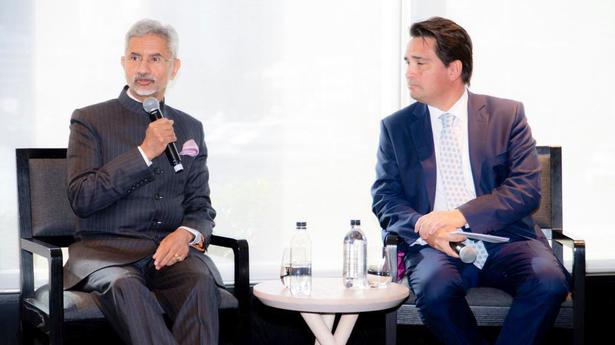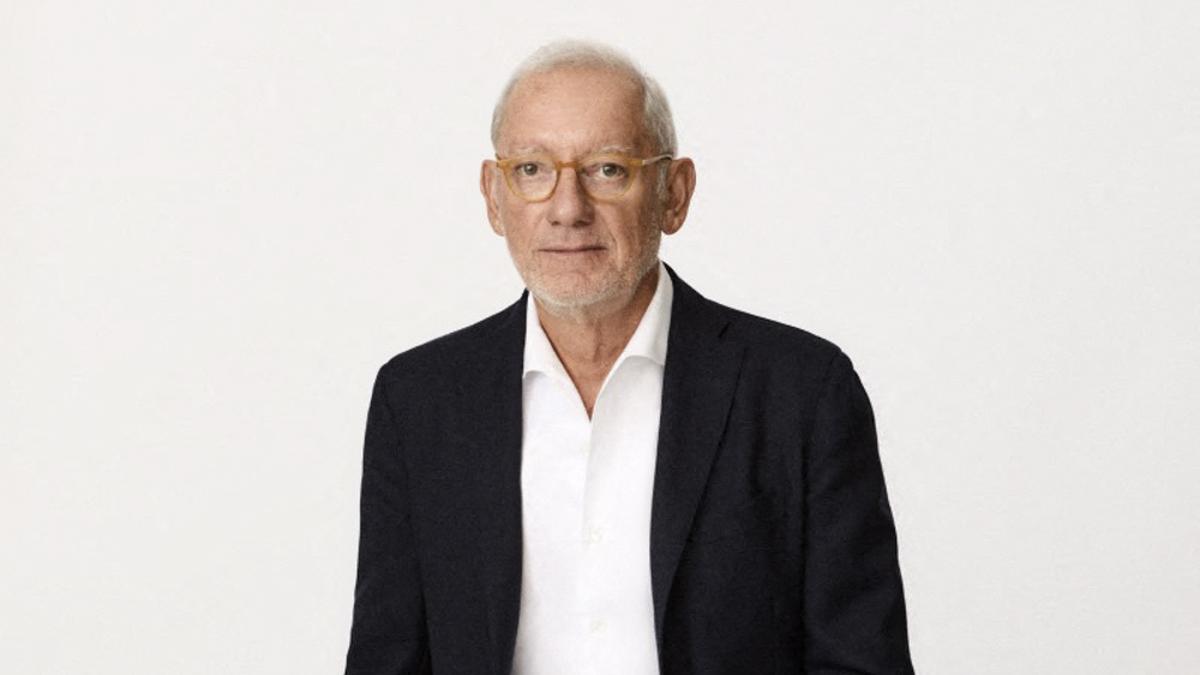External Affairs Minister also talked about India’s aspiration to become a permanent member of the U.N. Security Council
External Affairs Minister also talked about India’s aspiration to become a permanent member of the U.N. Security Council
India is willing to do whatever it can to facilitate a solution to the Ukraine crisis, External Affairs Minister S. Jaishankar said on Thursday, as he highlighted how India pressed Moscow on the safety of the Zaporizhzhia nuclear power plant in Ukraine when the two countries stepped up fighting near the highly sensitive facility.
Mr. Jaishankar, who is in Auckland on his first visit to New Zealand as the External Affairs Minister, during a lengthy interaction with Simon Bridges, the CEO of Auckland Business Chamber, said when it comes to Ukraine, it is natural that different countries and different regions would react a little differently.
The people will view it from their viewpoint, their immediate interest, historical experiences, their insecurities, he said.
“To me, the diversities of the world which are quite evident will also naturally lead to a differential response and I would not disrespect the position of other countries as I can see that many of them are coming from their threat perception, their anxiety, their equities in Ukraine,” he said.
In this situation, Mr. Jaishnakar said he would see what India can do, “which obviously would be in the Indian interest, but also in the best interest of the world.” “When I was in the United Nations, the big concern at that time was the safety of the Zaporizhzhia nuclear power plant because there was some fighting going on in the very proximity to it.” “There was a request to us to press the Russians on that issue which we did. There have been other concerns at various points of time, either different countries have raised with us or the U.N. has raised with us. I think at this time whatever we can do, we will be willing to do,” Mr. Jaishankar said.
The Zaporizhzhia Nuclear Power Station in southeastern Ukraine is the largest nuclear power plant in Europe.
“If we take up a position and voice our views, I don’t think countries would disregard that. and that we were visible in a meeting between my Prime Minister (Narendra Modi) and President (Vladimir) Putin,” he said, referring to the meeting between the two top leaders in Asthana on the sidelines of the Shanghai Cooperation Organisation (SCO) on September 16.
He also talked about India’s aspiration to become a permanent member of the U.N. Security Council, saying big problems of the day cannot be solved by one, two or even five countries.
“And when we look at the reforms, we have an interest in becoming a permanent member of the security council. It is also because we think in different ways and we voice the interests and aspirations of a broad set of countries,” he said.
He spoke about climate change and the Covid pandemic to highlight the discriminatory policies.
“If you travel today, especially to South Africa, there is a very strong sense of anger about how they have been treated during the pandemic. And today that sense of frustration that the world is not listening to, I see in respect of issues like food and fuel,” he said.
He said there is a feeling that their inability to deal with the daily necessities of life is disregarded by more established or powerful nations around the world.
“We have tended to look naturally at Ukraine to some degree as a kind of an East-West issue. I think there is a north-south aspect to the consequences of the Ukraine conflict,” he added.
“For us when you look at reformed global architecture, we say very clearly that India should be in the reformed security council. But we say equally strongly, that the entire continent of Africa has been excluded, and Latin America has been excluded,” he added.
Somewhere the system has also to cater not necessarily to the big guns if there has to be a larger legitimacy, Mr. Jaishankar added.
There is a larger issue here, there is an aspect of fairness and justice.
On ties with New Zealand, he said: “Opportunities to work together are far more realistic and practical.” “We need to look at each other very objectively, creatively and positively and what are the strengths we should play and try to build a stronger relationship,” he said.
He said one area of focus in bilateral ties with New Zealand would be business.
Mr. Jaishankar said stronger business ties do not require to have an FTA (Free Trade Agreement) and gave the example of the European Union, the U.S. and China with which India does not have an FTA.
How can we grow our business collaboration is the number one challenge, Mr. Jaishankar said.
He said other areas of collaboration with New Zealand would be education and digital collaboration, climate, security and well-being of the region.
He said the world has seen multiple stress tests since 2019 like COVID, the Afghanistan crisis and now the Ukraine conflict.
Together each one of them, one on top of each other, has put the world under difficult circumstances, he said.
“It is very important today to recognise that and understand that there are a lot of countries who are looking at the future and deeply worried about their ability to get fuel, food, fertiliser or finances for the people,” the Minister said.
“It is a difficult moment and when times are difficult it is equally important that those who have some capabilities to be part of the solution should step forward and do what they can. Each one of us may not be able to change the world by ourselves but by working together we kind of multiply the abilities,” he said.
A good example was raised during the COVID-19 pandemic, he said.
“We were one of the biggest manufacturers of vaccines and even when we were vaccinating our own people we took a very conscious decision that we would help others and we prioritised countries that we helped that would not have fair access to vaccines,” he said.
“In this region, we gave vaccines to Fiji and the Solomon islands,” he said.
“We need a kind of collaborative neighbourhood watch approach to the region (Indo-Pacific) where those who are comfortable with each other are prepared to work for the betterment of the region,” he said.
Responding to a question about the existence of a binary view in the world and India’s position in that, Jaishankar believed that the binary view is “outdated”.
“And quite honestly in the defence of the US, they don’t hold the binary view anymore. In fact, one of the changes we have seen in the last few years is the US is much more open towards working with countries outside the traditional alliance or treaty relationships,” he said.
“So, you have mechanisms like the QUAD, which involves some traditional allies of the US but also countries like India, which has historically stayed away from alliances and treaties,” he added.
“My sense why we should put the binary framework to rest is if you look today at the distribution of power, if you look at the major economies of the world… I would argue that there has been a much flatter distribution of power in the last 30-40 years,” he said.




